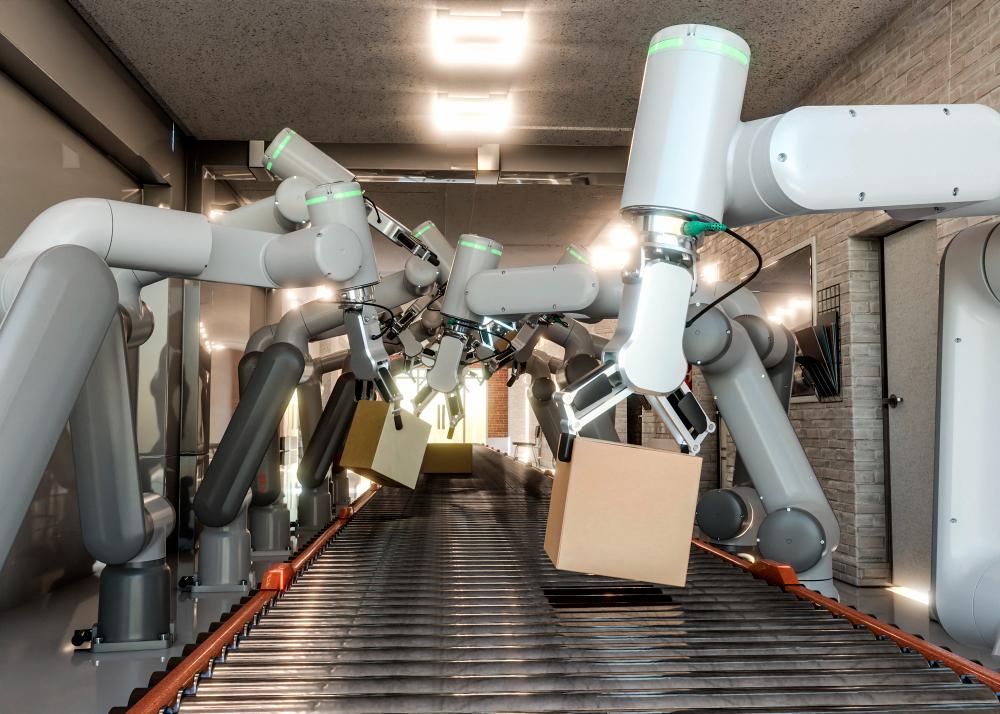AI in the Food Industry: Revolutionizing Culinary Processes with Robotics

The food industry is undergoing a remarkable transformation, thanks to the integration of artificial intelligence (AI) and robotics. Leading robotic automation companies are pioneering this shift, employing innovative technologies that enhance culinary processes, streamline operations, and elevate the dining experience. As these advancements take root, the potential benefits for food businesses—ranging from improved efficiency to reduced waste—are becoming increasingly evident.
The Impact of Robotics on Food Preparation
Imagine stepping into a kitchen where robots handle mundane tasks like chopping vegetables, mixing ingredients, and even plating dishes. This is not a distant dream but a current reality in many establishments, thanks to the efforts of robotic automation companies. These organizations develop sophisticated machines that use AI to replicate human tasks with precision and consistency.
One notable example is the emergence of fully automated kitchens. These kitchens leverage robotics and AI algorithms to optimize food preparation processes, allowing for real-time adjustments based on demand and ingredient availability. Such systems are particularly beneficial for high-volume restaurants and fast-food chains, where speed and consistency are critical. With robots taking care of repetitive tasks, chefs can focus on creativity and innovation, crafting unique dishes that enhance the culinary experience.
Enhancing Customer Engagement
AI-driven technologies are not limited to food preparation; they also play a significant role in enhancing customer engagement. Many restaurants are adopting mobile apps that enable customers to place orders, customize their meals, and make payments seamlessly. This shift toward digital interactions caters to modern consumers' preferences for convenience and speed.
Moreover, the use of robotics in food service—such as robotic waitstaff or delivery drones—can create a unique dining experience that sets a restaurant apart. For instance, some establishments have introduced robots that greet customers, take orders, and even deliver food to tables. These innovations not only streamline service but also provide entertainment, making dining out a more engaging experience.
Cost Considerations: The Financial Impact of AI
While the benefits of robotics and AI in the food industry are clear, businesses must carefully consider the costs associated with these technologies. Investing in robotic systems can be significant, which is why many food industry stakeholders turn to tools like the RPA ROI Calculator. This valuable resource helps businesses assess the potential return on investment from implementing robotic process automation (RPA) solutions, allowing them to make informed financial decisions.
Understanding the costs involved in adopting robotic technologies is essential. Businesses should analyze not just the initial outlay but also the long-term savings and efficiency gains that such systems can offer. For example, by reducing labor costs and minimizing waste through precise ingredient management, restaurants can recoup their investments more quickly than they might expect.
If you're interested in exploring the benefits of robotic automation companies services for your business, we encourage you to book an appointment with our team of experts.
The Future of AI and Robotics in the Food Industry
As we look to the future, the role of AI in the food industry will likely expand even further. With advancements in machine learning and data analytics, robots will become even more adept at predicting customer preferences and optimizing menus based on trends and dietary needs. This evolution could lead to a more personalized dining experience, where technology helps customers discover meals that match their tastes and health goals.
Sustainability is another area where AI and robotics can make a significant impact. With growing concerns about food waste and environmental sustainability, robotic systems can help optimize ingredient sourcing and minimize excess production. By leveraging real-time data, businesses can better manage inventory, ensuring that they only prepare what they can sell while reducing food waste.
Furthermore, as consumer habits continue to evolve, the demand for quick, healthy meals will likely increase. Robotics can help meet this need by efficiently preparing and delivering nutritious options at scale. AI algorithms can analyze dietary trends and preferences, enabling restaurants to adapt their menus accordingly.
Conclusion: Embracing Change with RPA Services
The integration of AI and robotics in the food industry is not just a trend; it represents a profound shift that will shape the future of culinary processes. As businesses navigate this transition, partnering with leading robotic automation companies will be essential to harnessing the full potential of these technologies. By investing in robotics and AI, food businesses can enhance operational efficiency, improve customer experiences, and contribute to a more sustainable industry.
Ultimately, the journey toward adopting these technologies is supported by the strategic use of RPA services. These services help businesses automate various processes, from supply chain management to customer engagement, maximizing efficiency and minimizing errors. As the food industry continues to evolve, those who embrace AI and robotics will be well-positioned to thrive in a competitive landscape.
- Art
- Causes
- Crafts
- Dance
- Drinks
- Film
- Fitness
- Food
- Jocuri
- Gardening
- Health
- Home
- Literature
- Music
- Networking
- Alte
- Party
- Religion
- Shopping
- Sports
- Theater
- Wellness
- IT, Cloud, Software and Technology


